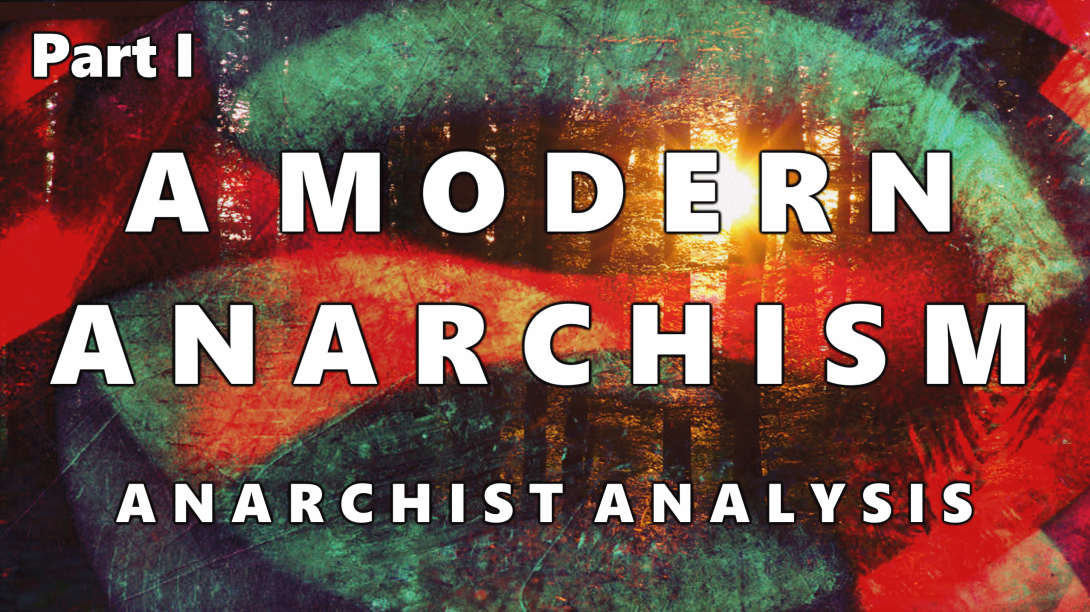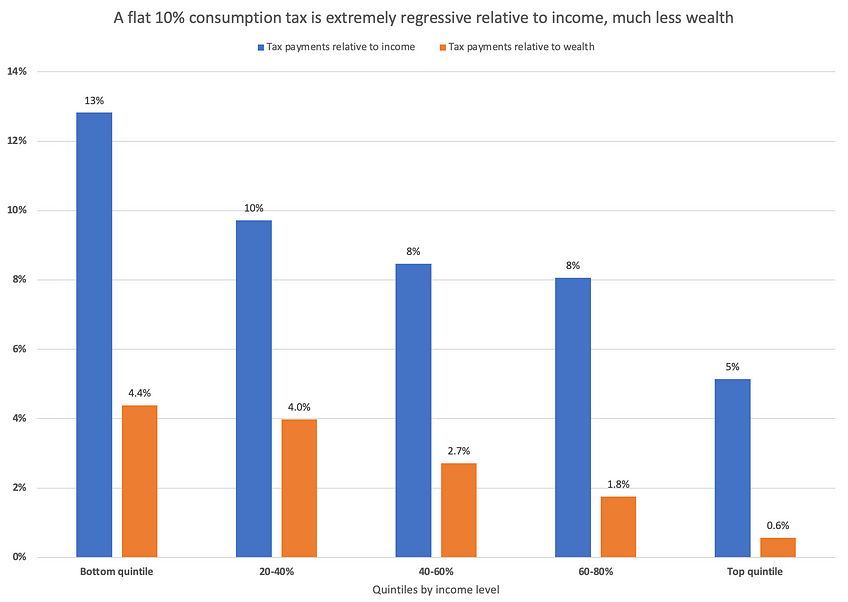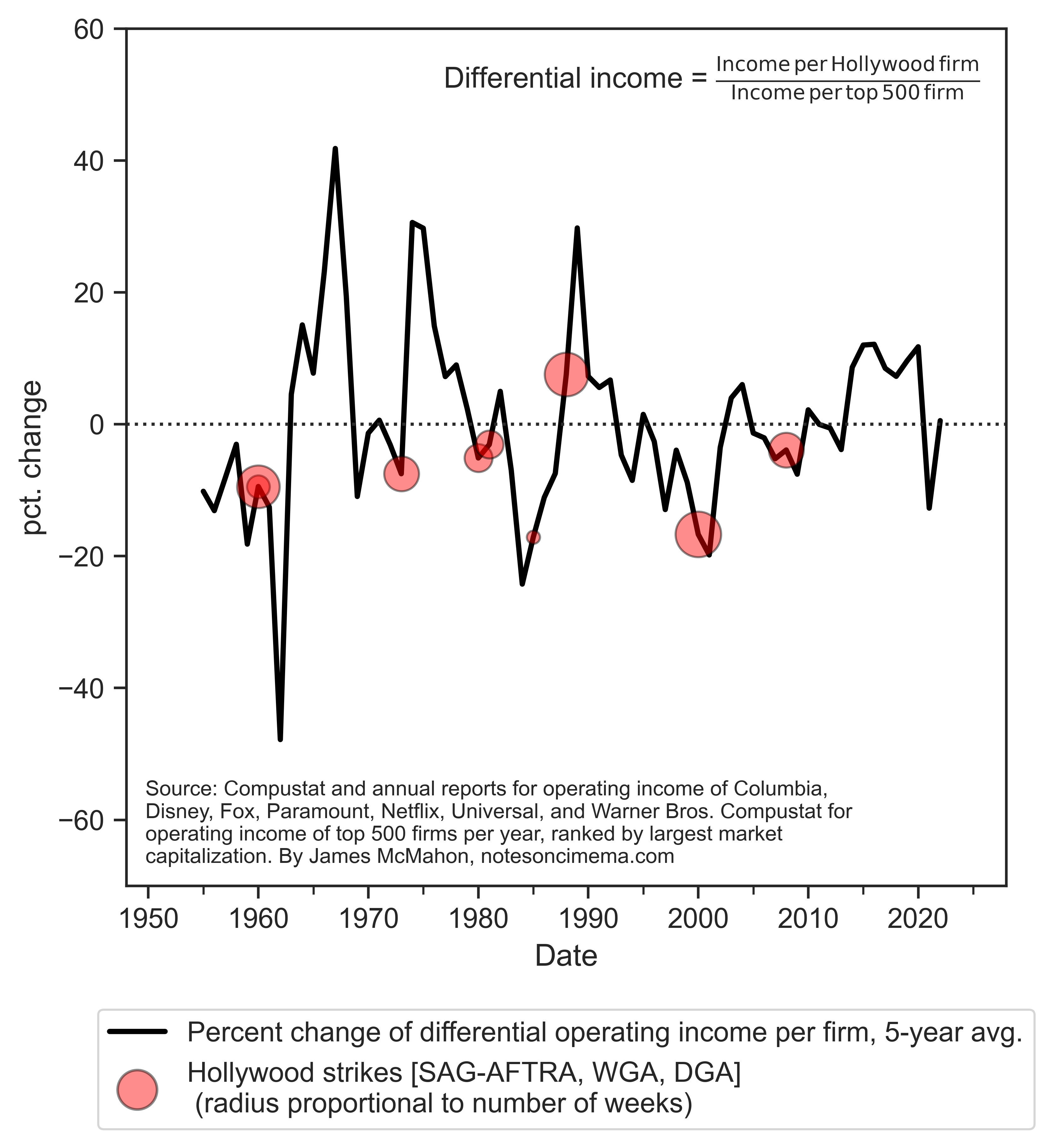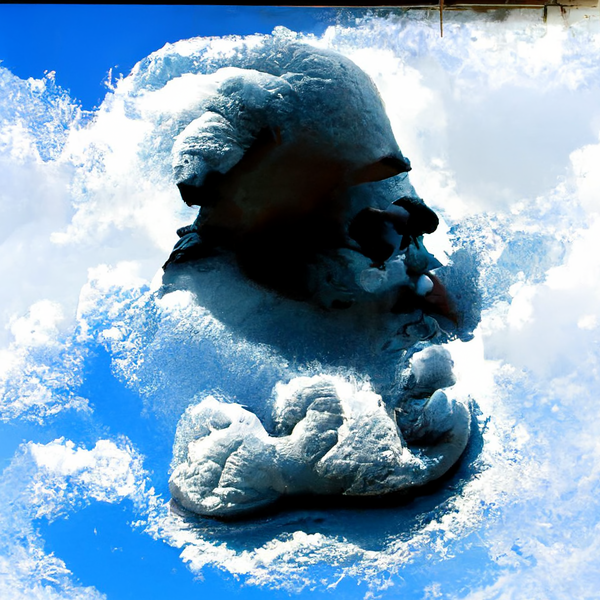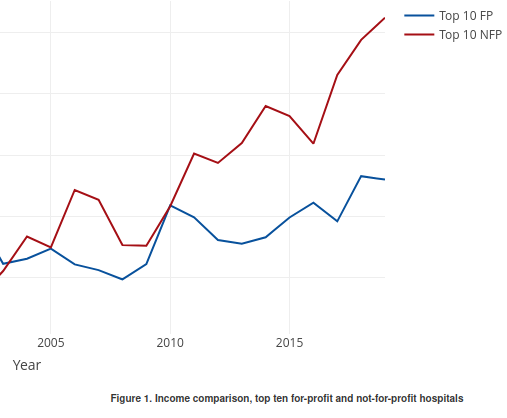Originally published at sbhager.com Sandy Brian Hager Reading in the latest FT Weekend about NovoNordisk’s recent moves to corner the market for weight loss drugs, I was reminded of an eye-opening article from Rana Foroohar late last year. In that piece, the always-sharp Foroohar discusses the emergence of new blockbuster drugs known as semaglutides. These […]
Continue ReadingSCMS Presentation: The Political Economic Roots of Hollywood Strikes, 1950-2023
Originally published at notes on cinema James McMahon This paper investigates the timing of labour strikes in Hollywood. The occurrence of strikes, such as the WGA and SAG-AFTRA strikes in 2023, can make sense when we have the hindsight to piece together the historical details of what created rifts between labour and management. But was […]
Continue ReadingAlberta’s Rockefeller coups, Part 6: The Financial Frauds of American Empire Are Driving Climate Disaster, But Both Could Still Be Thwarted
Regan Boychuk Author’s Note: John D. Rockefeller Sr. had the last laugh about American anti-trust law and the muck-raking media before descending to Dante’s 9th Circle in May 1937. The oil industry’s center of gravity had begun shifting towards Texas after Spindletop in 1901, but Rockefeller coups across North America in 1931, 1935, 1938, and 1940 […]
Continue ReadingA Case Study of Fossil-Fuel Depletion
Originally published at Economics from the Top Down Blair Fix A few months ago I received an intriguing email from researcher and activist Regan Boychuk. For the past 15 years, Boychuk has been studying the oil-and-gas industry in Alberta (Canada) and he wanted to know if I would join his project. I immediately said yes. […]
Continue ReadingThe political economic roots of Hollywood strikes, Part 3
Originally published at notes on cinema James McMahon Around the time of this post, SAG-AFTRA and the Alliance of Motion Picture and Television Producers (AMPTP) produced a tentative agreement in their 2023 negotiations. The SAG-AFTRA National Board approved the tentative agreement, and recommends for the ratification of the 2023 TV/Theatrical contracts. – J When the […]
Continue ReadingHow trade secrets swallowed your right to know
Originally published at pluralistic.net Reproduced under a Creative Commons Attribution 4.0 license Cory Doctorow If you’ve never had a fight over the phrase “intellectual property,” count yourself lucky, you normie, you. In the land of Free Software and Free Culture, “IP” is fightin’ words. Not unreasonably, mind you. “IP” was a deliberately ploy, undertaken by […]
Continue ReadingThe political economic roots of Hollywood strikes, Part 2
Originally published at notes on cinema James McMahon Missed Part 1? You should start here. Author’s note: Around the time of this post, the WGA and the Alliance of Motion Picture and Television Producers (AMPTP) produced a tentative agreement in their 2023 negotiations. The WGA Negotiating Committee, the WGAW Board and WGAE Council all voted […]
Continue ReadingThe Costly Betrayal of Cost-Benefit’s Promise
Jerry Cayford Originally published here A conversation, eighty-some years ago, shaped our world today. The conversation was among three papers in economics. In 1939, Nicholas Kaldor and John Hicks published papers that steered economics through a major crisis, one that threatened its legitimacy as an advisor on public policy. With the Great Depression still raging […]
Continue ReadingInstitution Size as a Window into Cultural Evolution
Originally published at Economics from the Top Down Blair Fix One of the challenges of studying the past is that time has a maddening way of erasing evidence. Take the origin of life — the ultimate cold case. Had the first organisms been wise enough to fossilize themselves, we would know exactly how life began. […]
Continue ReadingMoney is power
Originally published at pluralistic.net Reproduced under a Creative Commons Attribution 4.0 license Cory Doctorow “Political economy” may sound like an obscure technical matter, but it’s a really very simple (and incredibly important) idea: That the economy is inevitably political, and there is no way to depoliticize economic theory. That is, every aspect of economics – […]
Continue ReadingAlberta’s Rockefeller Coups, Part 5: Canada is an American Protectorate & Alberta is an Imperial Bezzle
Regan Boychuk Green Party of Alberta energy critic Author’s note Extraordinary claims require extraordinary evidence. The suggestion that a semi-secret conspiracy of racists transferred imperial control of Canada from the British to the Americans on the eve of the Second World War seems well worth skepticism. But doubt will melt as we meet the elite […]
Continue ReadingA Modern Anarchism (Part 1): Anarchist Analysis
Daniel Baryon Originally published at libcom.org Author’s Note The following is the script of the video I published on my channel Anark. If you would like to watch that video, it is here Minor edits have been made to the script to instead refer to itself as an essay instead of a video. Other than […]
Continue ReadingWhy Consumption Taxes (VATs) are Insanely Regressive
Originally published at Wealth Economics Steve Roth Following the community of Socks (?s) or “social democrats” out there on the interwebs (this is definitely my economic tribe), in articles, and in books, there’s a particular stance on a particular issue that I find perplexing, even anti-progressive. They’re generally quite keen on using “value-added” consumption/sales taxes […]
Continue ReadingThe political economic roots of Hollywood strikes, Part 1
Originally published at notes on cinema James McMahon On May 2, 2023, the Writers Guild of America (WGA) went on strike after failing to reach an acceptable agreement with the Alliance of Motion Picture and Television Producers (AMPTP), the trade association that negotiates for the film and television interests of the major Hollywood studios. While […]
Continue ReadingHow the Labor Theory of Value Emerges from Egalitarianism
Originally published at Economics from the Top Down Blair Fix Download: PDF | EPUB … the value of a commodity is determined by the quantity of labour spent on it … — Karl Marx In the 1860s, Karl Marx declared that all value stemmed from labor. A century-long firestorm ensued. On its own, Marx’s claim […]
Continue ReadingHow elite hobbies let billionaires pay no tax
Originally published at pluralistic.net Reproduced under a Creative Commons Attribution 4.0 license Cory Doctorow When you hear that a billionaire has bought a horse or a newspaper or a sports team, you might think it’s just dilletantish dabbling by a member of the parasite class with nothing better to do with their time – a […]
Continue ReadingEnvironmental conflict, capital as power … and a nice trip to London
Originally published at Manchester Metropolitan University Adam Marshall In recent years, as governments and corporations have intensified their efforts to locate, extract and monetise oil, gas, and various other biophysical resources, the world has simultaneously witnessed a proliferation of social resistance to these efforts. While such resistance can take many forms, it is invariably motivated […]
Continue ReadingAll you need to know about climate change
Originally published at Asimmetria Yuri Di Liberto What if I told you that they knew everything? And that they have known it for a very long time? On January 13 of this year, 2023, in the journal Science, perhaps the most important article to date on climate change was published. In political, social, and ethical […]
Continue ReadingOn May 29th, Alberta Can Slip Its American Noose
Regan Boychuk Green Party of Alberta energy critic & May 2023 candidate for Banff-Kananaskis Author’s note This article will prove the United States imposed its foreign policy doctrine of “Minimum Duty” on Alberta in November 1938 and that politics in Alberta and Canada today remain in the shadow cast by that imposition of Minimum Duty. […]
Continue ReadingWhy are not-for-profit hospitals in the US so much more profitable than for-profit hospitals?
Christopher Mouré and Shai Gorsky When it comes to social institutions, not-for-profit organizations (NFPs) allegedly strike a balance between the private and public realm. While privately owned and operated, not-for-profits are distinguished by their ostensibly public purpose – in eschewing private profits, they claim to make the pursuit of some social benefit their primary objective. […]
Continue Reading











